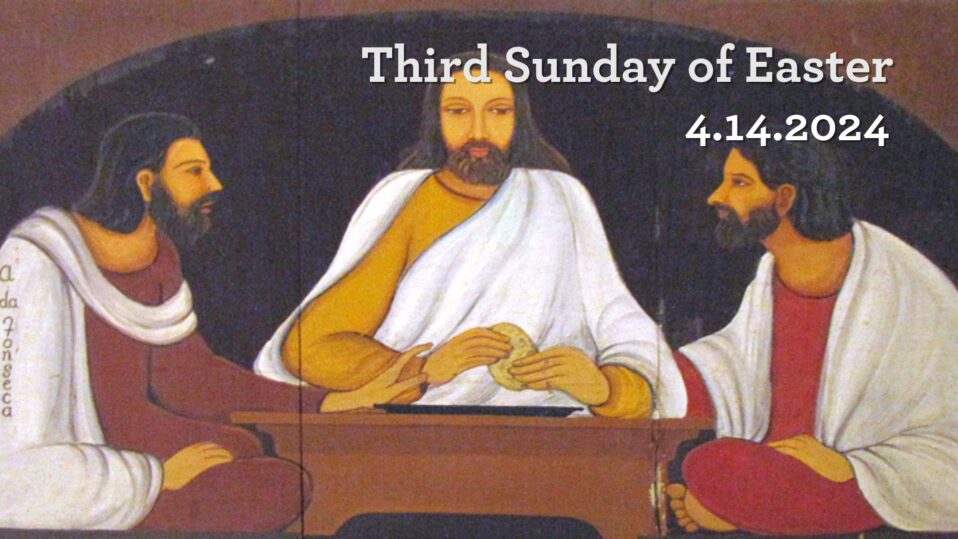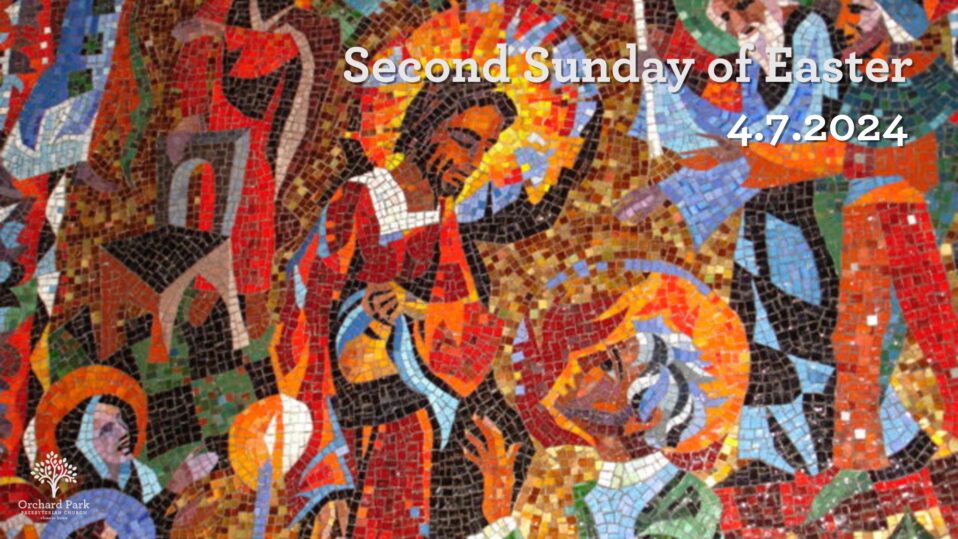Sermon
October 22, 2023
The news the past two weeks has been sobering to say the least. Regardless of what news channel you watch, or what political way you lean I think we all can stand in agreement that things aren’t going well. The war between Hamas and Israel, the sorrow, anger, fear, and distrust that has ensued following the terrorist attack on Israel has put an already chaotic world into a tailspin.
Conflict in Israel and incidents of division between nations and people is as old, even older than our scripture reading today.
Our scripture passage takes place in the greater story of Matthew nearing the end of the Gospel. By now Jesus has turned over the money changers in the temple, he has ridiculed the pharisees multiple times, he has spoken truth to power, and he has told them their place in the kingdom of heaven will come second to the likes of prostitutes and tax collectors.
The Pharisees collude with another group called the Herodians. The Pharisees were interested in keeping their religious power, the Herodians were interested in keeping their political power. Both were interested in Jesus losing his power. This is a prefect example of the saying “politics makes strange bed fellows,” for while neither of them particularly cared for each other, they both had a common interest in silencing Jesus. So, representing two signs of the same coin, they get together and sidle up to jesus and say, “Jesus we know that you are honest and forthright and will answer this question honestly, sit lawful to give tribute to Caesar, or not?” This was their strategy: if the Lord said yes, then the Pharisees would catch Him, but if He said no, the Herodians would catch Him. Either way, they thought, He would be caught.
Jesus asks them, do you have a coin on you? Why yes, they say. He takes the coin and asks the question, whose image is on it? Ceasar, they respond. He then says, render unto ceasar what is his and unto God what it is his. I imagine he then flips the coin in the air for them to catch, and he walks away. Darn. The trick didn’t work. What just happened here? Is Jesus saying pay your taxes and pay your pledge and keep them separated? Is Jesus saying God and Ceasar, or religion and politics are not interrelated? Is Jesus saying, be a good citizen and pay your taxes?
These are the questions the church has been grappling with since the church began. How do we co-mingle our citizenship in our country with our citizenship with kingdom of God – Or do we?
Some religions have decided not to engage with the world at all and have chosen to disengage. This stance is to let the church be the church, which might be described as the Amish way. The underlying text for this example would be John 18:36, where Jesus says “My kingdom is not of this world.”
Christians in this model object on religious grounds to voting, paying taxes, and holding state jobs. This model locates God’s revelation in the church alone and remembers the horrible Let Rome do as it pleased, as long as Israel became holy. That’s one way you can look at it, and how the Pharisees wanted, just leave us be and we will leave you be.
A second way you can look at it is you can let Caesar be Caesar. The forefather of this tradition is Martin Luther, who had a theology of two kingdoms, the kingdom of God and the kingdom of the world, and the underlying text might be from today’s passage where Jesus says, “Give to Caesar what is Caesar’s and to God what is God’s.” The kingdom of the world is run by Caesar who handles the things of the flesh, especially the economy and the military. Unlike the first example in which the church distrusts and even avoids interacting with the government, in this model the church trusts the government a great deal.
The idea is to let the church worry about the soul and let the government worry about the body. The problem with this model is history. If the church does not engage in the behaviors of human kind, humankind loses it’s moral compass. If people do not speak up for injustice, then injustice rules the day. Consider the church’s silence in the 1930’s when the church offered nary a word of question or condemnation during the rise of the Third Reich. Consider the church in the 19th century in this country when the majority of the church in America was happy to preach pie in the sky and bodies to the plow, allowing government encouraged slavery to drive the American South onto the global economic stage. The Herodians were very happy with this idea of letting ceaser be ceaser. You just sit over there with your Bible and your prayers, and we will take care of everything else.
So that’s two ways to look at, but there s a third and that is the idea that the Church engages with Ceasar. This idea suggests that there aren’t two kingdoms, but one kingdom. It suggest that you can’t love both God and money. That you can’t separate your body from your soul, your flesh from your spirit, your behavior on Friday night and your behavior on Sunday morning. It’s all connected. God is bigger than Ceaser. Ceaser belongs to God. Therefore, all things belong to God, even that which you give to Ceasar.
The radical thing in Jesus’ teaching this morning is not that he endorses allegiance to civil authority. The radical thing in this statement is that he gives us a way to be both citizens and people of faith.
When Jesus tells us that we must render to God and Caesar the things that are their own, he is offering us the opportunity to be faithful citizens. Given the great prophetic traditions of Christian witness, being a citizen of faith means neither unthinking obedience nor hermetic detachment. A faithful citizen is one who holds both God and Caesar in critical tension with each other. The best way for me, as a Christian, to “render unto Caesar” is not only to pay my taxes but also to hold Caesar accountable to God.
The First Amendment does not absolve us from caring about the nation. It is not a free pass out of the obligations of citizenship. And if it does nothing else, our baptism impels us toward engagement with the Gospel dimension of public life. Separation of church and state does not mean that people of faith have nothing to say about public policy. It means that you and I, as followers of Jesus, don’t have a special privilege when we come to the table. But come to the table we must, if we are to “render therefore unto Caesar the things which are Caesar’s; and unto God the things that are God’s.”
Jesus had to ask for a coin because he wasn’t carrying one. Jesus was poor. Serving Jesus demands that we serve the poor.
What are we doing collectively to serve and help the poor? And, beyond the poor, what are we doing to serve and help all those Jesus publicly and privately consorted with: the sorrowful, the sick, the oppressed, those at the margins of society? How are we bringing Gospel values to bear on the concerns of our common life? How can we work together, in the interests of the common good, to make the blessings and opportunities of our shared heritage available to all? These are the concerns of the faithful citizen. They were the concerns of Jesus.
“Render therefore unto Caesar the things which are Caesar’s; and unto God the things that are God’s.”
What would Jesus tell us about food insecurity? About the wars in Israel and Ukraine? About immigration?
There is no one Christian position on these issues, but they are all of concern to those who follow Jesus. The Gospel calls us to stand where he stood, in the hard tension between faith and freedom. It’s a tricky and difficult place to be—both a Christian and an American—but the Gospel allows us no other, except this promise: you are made in the image of God, you are baptized by the power of the Holy Spirit and you are called to be a disciple of Jesus Christ.
It’s all one kingdom; there is one Lord.
Amen.
Rev. Dr. Shelly Wood



